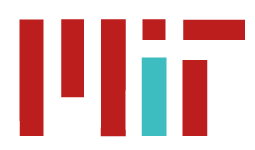From programmable robots for preschoolers to AI assessment applications, technology-infused learning has swiftly entrenched itself as a cultural norm and a necessary way for individuals, businesses, and governments to gain and maintain a competitive educational advantage. Without prompting, high school and college students can be found regularly using whatsapp groups to stay connected and Youtube videos to supplement their in-class experience. When purposefully designed, such educational technologies can be powerfully impactful, helping individuals build and connect with communities as they learn the knowledge and skills that are necessary to help them solve complex problems and to broaden their ideas and views of the world. Alongside these advances in education technologies are rapid changes in the physical, technical, and social systems of the next generation. In order to grapple with these global changes and adapt to an increasingly competitive workforce, education systems must begin preparing students of all ages with future-ready skills such as collaboration, creative problem solving, and data literacy. Building these skills will prepare individuals to have increased agency over their own education, and not only cope with the influence of technology-driven change and the impact of globalization, but play an active role in shaping the future of work and life.
The Playful Journey Lab, housed within MIT Open Learning, was spun out from the Education Arcade and Teaching Systems Lab. Created by researchers and designers with a passion for playful assessment and learning, we are embarking on a journey developing emerging technologies as well as non-digital tools to better understand, design, and use innovative approaches that will prepare individuals to participate in 21st century economies. The lab is founded on the belief that these technologies and approaches, supported by research-backed playful learning and assessment practices, are an important tool for empowering learners, and are necessary for designing a lifelong and lifewide education system that prepares individuals to learn throughout their lives – across school, work and interest-driven contexts.

